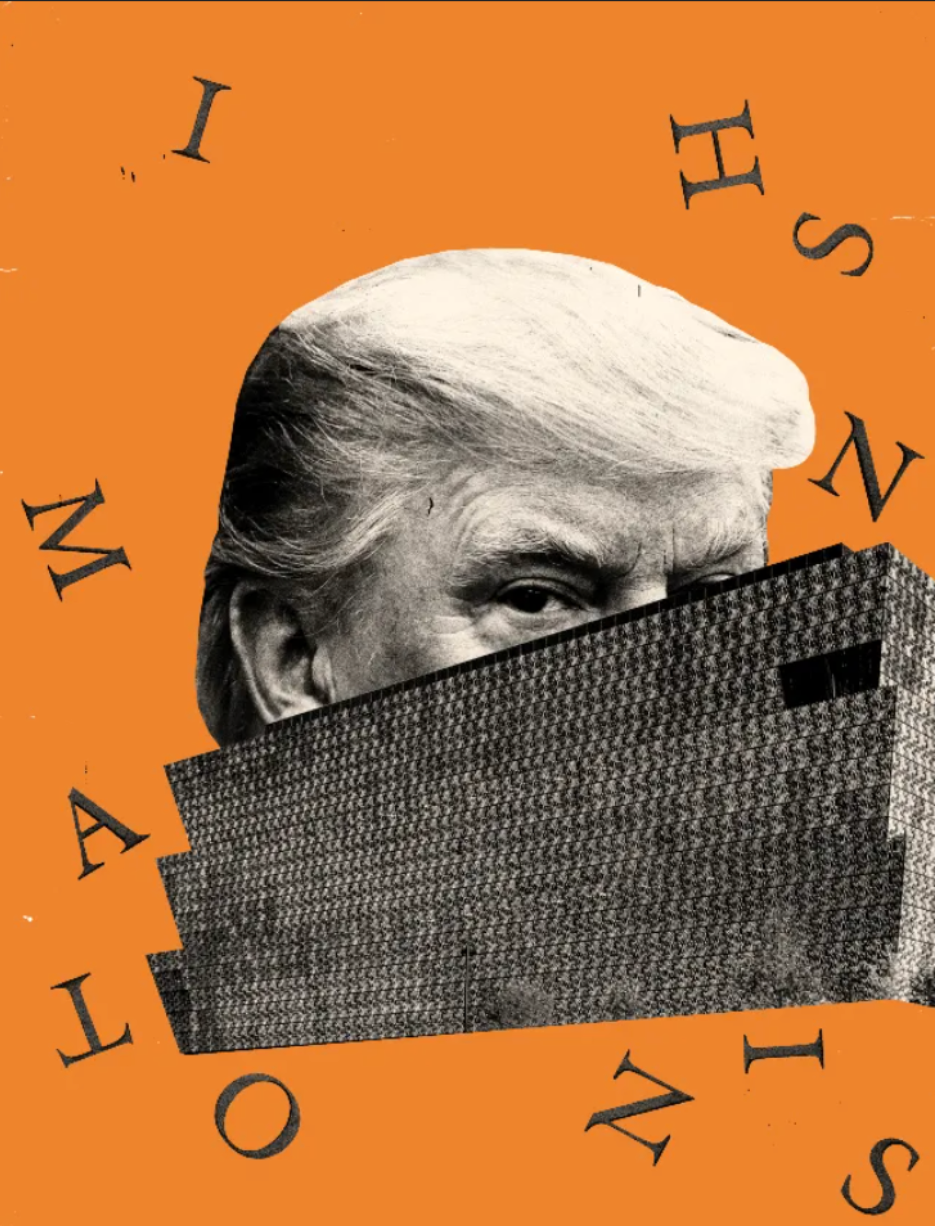Rewriting History: Trump’s attacks on the Smithsonian
- Celine Shi
- Oct 27, 2025
- 3 min read
Updated: Nov 7, 2025
Removing what the administration deems “woke,” the White House erases uncomfortable historical truths.

In March 2025, Trump issued an executive order aimed at federal sites dedicated to history, accusing the Smithsonian of promoting a “divisive, race-centered ideology”. The order directed that the Smithsonian (according to former senior historian and curator David C. Ward) “celebrate American exceptionalism” and eliminate exhibits or programs that “degrade shared American values”. Trump also escalated his criticisms on social media, claiming that the Smithsonian focused excessively on negative aspects of American history, such as slavery, rather than celebrating national success.
The Smithsonian came under fire in July after removing a temporary placard referencing Trump’s two impeachments from a display at the National Museum of American History although the institution later denied it had been pressured by the government to make changes to its exhibits. In August 2025, the White House initiated a formal review of eight museums within the Smithsonian network, demanding extensive documentation and that they must “replace divisive or ideologically driven language with unifying, historically accurate, and constructive descriptions” within 120 days.
Trump’s actions are part of a wider effort by his administration to influence and control cultural institutions and media. The administration has targeted federal funding for arts and cultural organizations. The National Endowment for the Humanities (NEH) has seen layoffs, firings of council members, and funding withdrawals. There is also an expansion of censorship to other museums where Trump criticizes other museums across the country, referring to them as “the last remaining segment of ‘WOKE’”.
In response to the administration’s pressure, museum organizations and free-speech advocates warn against political inference in curatorial practices. Groups like the American Alliance of Museums and the American Historical Association argue that dictates on what is displayed risk narrowing the public’s access to evidence and a full range of perspectives. Opponents have voiced fears that the administration’s efforts could lead to a sanitized and “whitewashed” version of history by minimizing or erasing uncomfortable truths, including those related to slavery and systemic racism. They sought changes as “demoralizing” and “farcical.” The OAH said the White House’s effort to assert control over the Smithsonian "aggressively push to flatten American history into a narrowly conceived, unrepresentative, and simplified story” and asks the professionals working at the institution to “violate their ethics and their dedication to free and open historical inquiry”. Meanwhile, Smithsonian Secretary Lonnie Bunch has internally affirmed that the institution's work will be guided by scholarship and remain free of partisanship.
When narratives are sanitized and the brutal realities of slavery or the experiences of Black Americans are watered down or omitted, society risks developing a distorted, incomplete, or triumphalist view of its past.
Institutions like the Smithsonian are often seen as guardians of historical truth. If they are forced to alter their narratives to satisfy political pressures, public trust in these institutions will erode. This selective storytelling can lead to the loss of historical complexity and nuance, as well as weakening the ability to learn from past mistakes, making it harder to address ongoing social problems rooted in history such as inequality to serve communities with integrity. Most importantly, erasure of the identities and lived experiences of marginalized groups reduces empathy and the sense of social responsibility across generations.
Fragmenting shared narrative weakens social cohesion, resulting in reduced trust and increased division. Especially towards future generations, perpetuating injustice by obscuring the root causes of present-day disparities hinders an essential and healthy democracy. Future generations may lose touch with the diverse and complex origins of contemporary America with the risk of cultural amnesia. These pressures can create a chilling effect across the entire museum sector. Freedom of thought and expression has always been foundational American values, and museums uphold them by creating spaces where people can engage with history in ways that are honest and thought-provoking.
When certain narratives are erased or vilified, opportunities for reflection diminish, and individuals may become less equipped to question authority or recognize harmful patterns in current events. This “cultural amnesia” doesn’t just erase difficult histories – it also removes the foundation for constructive problem-solving and cross-cultural empathy essential for growth as a nation.
Celine Shi ‘29
















Comments